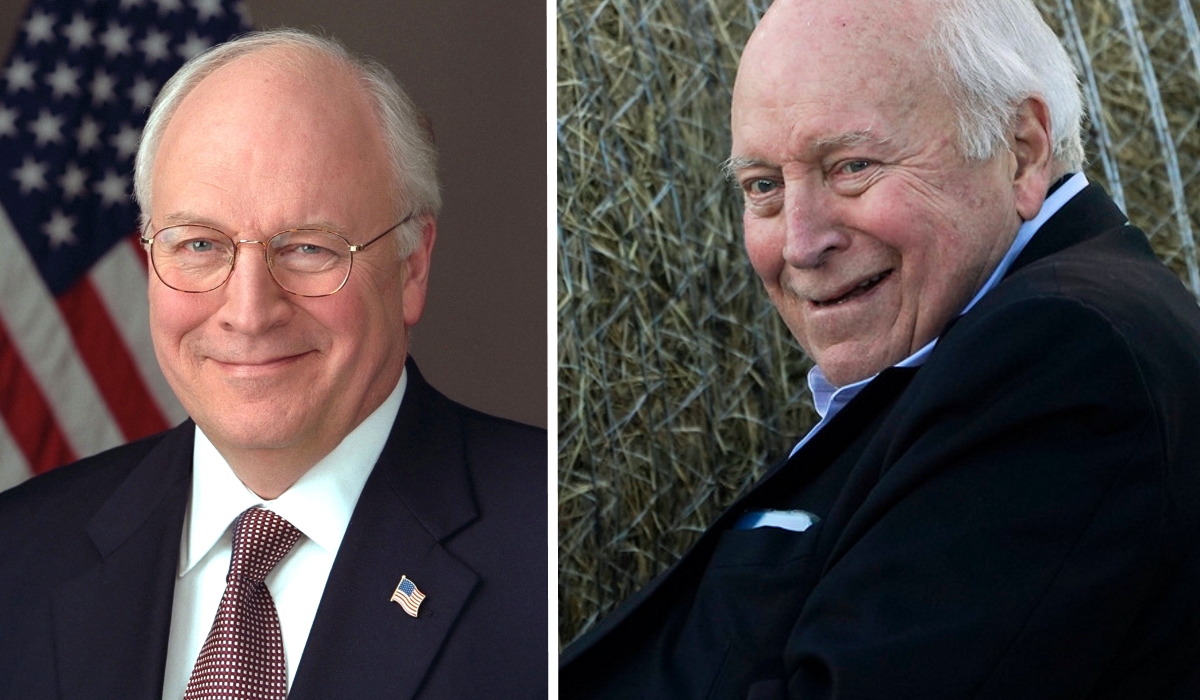Former U.S. Vice President Dick Cheney has died at the age of 84, his family confirmed in a statement early this morning. The longtime Republican power broker and one of the most influential — and divisive — figures in modern American politics passed away peacefully at his home in Wyoming, surrounded by family. No official cause of death has been released, though Cheney’s long history of heart problems was well known.
“Our beloved husband, father, and grandfather passed away peacefully,” the family’s statement read, according to CNN. “He was a man of great conviction and devotion to his country. His leadership, intellect, and love for America will never be forgotten.”
Cheney, who served as Vice President under President George W. Bush from 2001 to 2009, was often described as the most powerful second-in-command in U.S. history. He was the quiet architect behind some of the most consequential decisions of the early 21st century — including the invasions of Afghanistan and Iraq, the use of enhanced interrogation techniques, and the establishment of a sweeping global war on terror.
Former Vice President Dick Cheney has died at 84. A defining figure of post-9/11 America. @nytimes
Born in Lincoln, Nebraska, in 1941, Richard Bruce Cheney rose from humble beginnings to become one of Washington’s most feared and respected power players. After serving as Chief of Staff under Gerald Ford and later as Secretary of Defense under George H.W. Bush — overseeing Operation Desert Storm — Cheney seemed destined to remain behind the scenes. But his 2000 partnership with George W. Bush would propel him to a level of political influence unseen for any vice president before or since.
During the Bush years, Cheney was known for his iron grip on national security policy. He maintained a famously secretive network within the administration, one that journalists later dubbed the “shadow presidency.” According to The Washington Post, Cheney’s office operated with unprecedented autonomy, often issuing directives directly to defense and intelligence agencies without White House review.
“He fundamentally reshaped the power of the vice presidency,” historian Dr. Robert Dallek told the BBC. “He wielded influence in matters of war, surveillance, and energy that went far beyond any vice president in history.”
But Cheney’s legacy remains deeply polarizing. Supporters have long hailed him as a patriot who made hard choices in an era of fear and uncertainty following the September 11th attacks. Critics, however, accused him of championing torture, war profiteering, and the erosion of civil liberties. The 2018 film *Vice*, starring Christian Bale, reignited public debate over Cheney’s ethics and his outsize power in shaping American foreign policy.
“He was one of the most consequential figures in American government — admired, feared, and often misunderstood.” — Historian Robert Dallek @guardian
Despite the controversy, Cheney’s health battles often humanized him in the public eye. He suffered his first heart attack at just 37 and endured multiple more over the decades, ultimately receiving a heart transplant in 2012. In an interview with NBC after the surgery, he said, “Every day since has been a gift.”
Known for his dry wit and unflinching demeanor, Cheney often brushed off his critics. When asked in 2008 how he viewed his low approval ratings, he famously replied, “So?” — a moment that became both infamous and emblematic of his political philosophy: focus on power, not popularity.
Tributes poured in from across the political spectrum following the news of his death. Former President George W. Bush released a statement calling Cheney “a steady hand during the nation’s darkest days.” “I valued his judgment and friendship,” Bush wrote. “America has lost a patriot of the highest order.”
On social media, reactions were mixed. Some conservative commentators praised his “unapologetic leadership,” while others cited the lingering wounds of his wartime decisions. “Dick Cheney changed the world,” one user wrote on X. “But whether it was for better or worse depends on who you ask.”
“Dick Cheney defined the post-9/11 era — secrecy, strength, and controversy.” @Reuters
Cheney’s daughter, Liz Cheney, a former congresswoman and fierce critic of Donald Trump, shared an emotional message shortly after her father’s passing. “My father dedicated his life to this country,” she wrote. “He believed in courage, conviction, and doing what was right — not what was easy.”
President Joe Biden also issued a brief statement acknowledging Cheney’s “service and impact.” “We may not have agreed on much,” Biden said, “but I respected his decades of commitment to public service.”
Cheney’s final years were spent largely out of the spotlight, dividing his time between his ranch in Jackson Hole and quiet appearances at national security conferences. Insiders say he remained sharp and politically engaged until the end, continuing to advise younger conservatives behind the scenes. “He still had opinions about everything — and wasn’t shy about sharing them,” a former aide told The New York Times.
For many Americans, Cheney’s death marks the end of an era — a chapter in U.S. politics defined by secrecy, ideology, and the global reverberations of 9/11. “His fingerprints are on every major decision from that time,” said journalist Terry Gross. “Even in death, the debate about his legacy will continue.”
Cheney is survived by his wife of nearly 60 years, Lynne, and their two daughters, Liz and Mary. Funeral arrangements are expected to be announced later this week, with full state honors anticipated.
“He was the most powerful vice president in U.S. history — and one of its most divisive.” — NPR @NPR
As tributes continue to flood in, one truth remains clear: few figures shaped the 21st century quite like Dick Cheney. Whether remembered as a patriot or a puppet master, his shadow over American history will linger long after the flags are lowered to half-mast.






